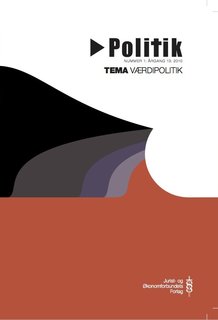Danske domstole mellem tradition og fornyelse
DOI:
https://doi.org/10.7146/politik.v13i1.27435Resumé
The Danish Judiciary was reformed in 1999 as to the important question of appointing new judges. The traditional recruitment of judges in Denmark has predominantly taken place within the cadre of the Danish Ministry of Justice and the explicit purpose of the reform was to alter this tradition and to ensure a broader and more open appointment of judges to the various levels in the court system. However, recent surveys of appointments display a limited movement towards innovation and diversity. The vast majority of new judges are still recruited from within the court system itself or the Ministry of Justice. Although the debate on appointment of judges is controversial in a Danish context, especially among the courts themselves, the article argues that the court system is obliged to implement the reform from 1999 and that the Danish judiciary has an interest in creating diversity among judges and ensuring its independence.
Downloads
Publiceret
Citation/Eksport
Nummer
Sektion
Licens
Forfattere, der publicerer deres værker via dette tidsskrift, accepterer følgende vilkår:
- Forfattere bevarer deres ophavsret og giver tidsskriftet ret til første publicering, samtidigt med at værket er omfattet af en Creative Commons Attribution-licens, der giver andre ret til at dele værket med en anerkendelse af værkets forfatter og første publicering i nærværende tidsskrift.
- Forfattere kan indgå flere separate kontraktlige aftaler om ikke-eksklusiv distribution af tidsskriftets publicerede version af værket (f.eks. sende det til et institutionslager eller udgive det i en bog), med en anerkendelse af værkets første publicering i nærværende tidsskrift.
- Forfattere har ret til og opfordres til at publicere deres værker online (f.eks. i institutionslagre eller på deres websted) forud for og under manuskriptprocessen, da dette kan føre til produktive udvekslinger, samt tidligere og større citater fra publicerede værker (se The Effect of Open Access).

